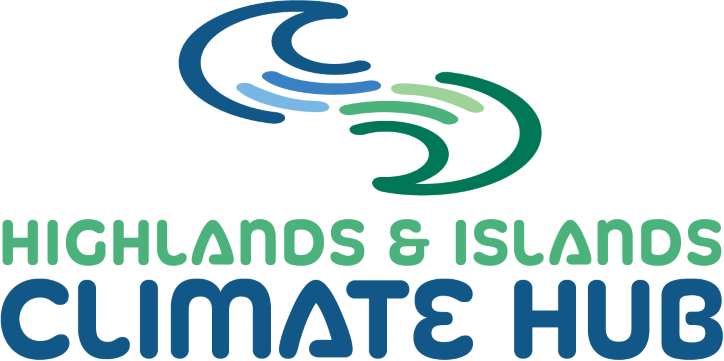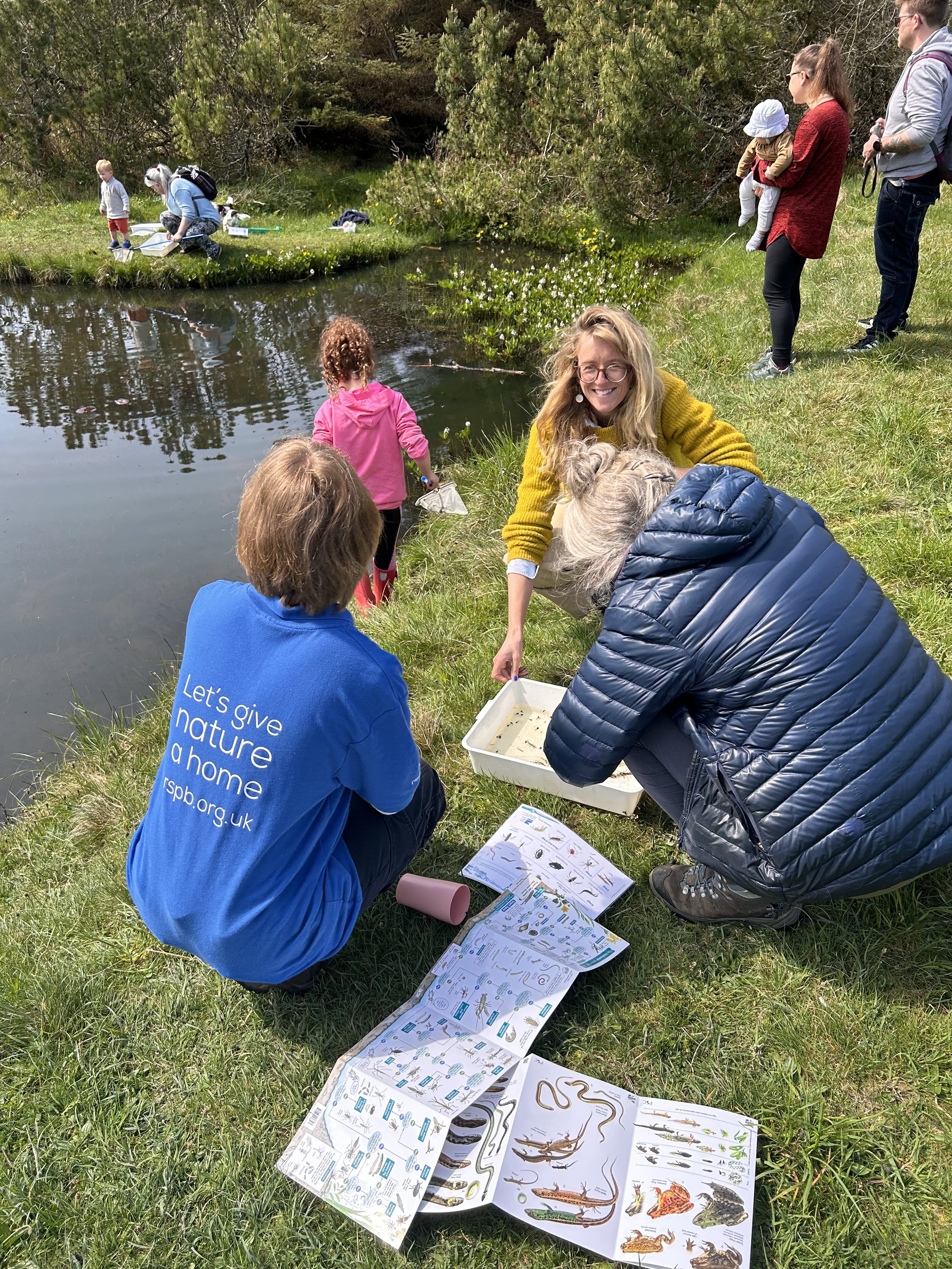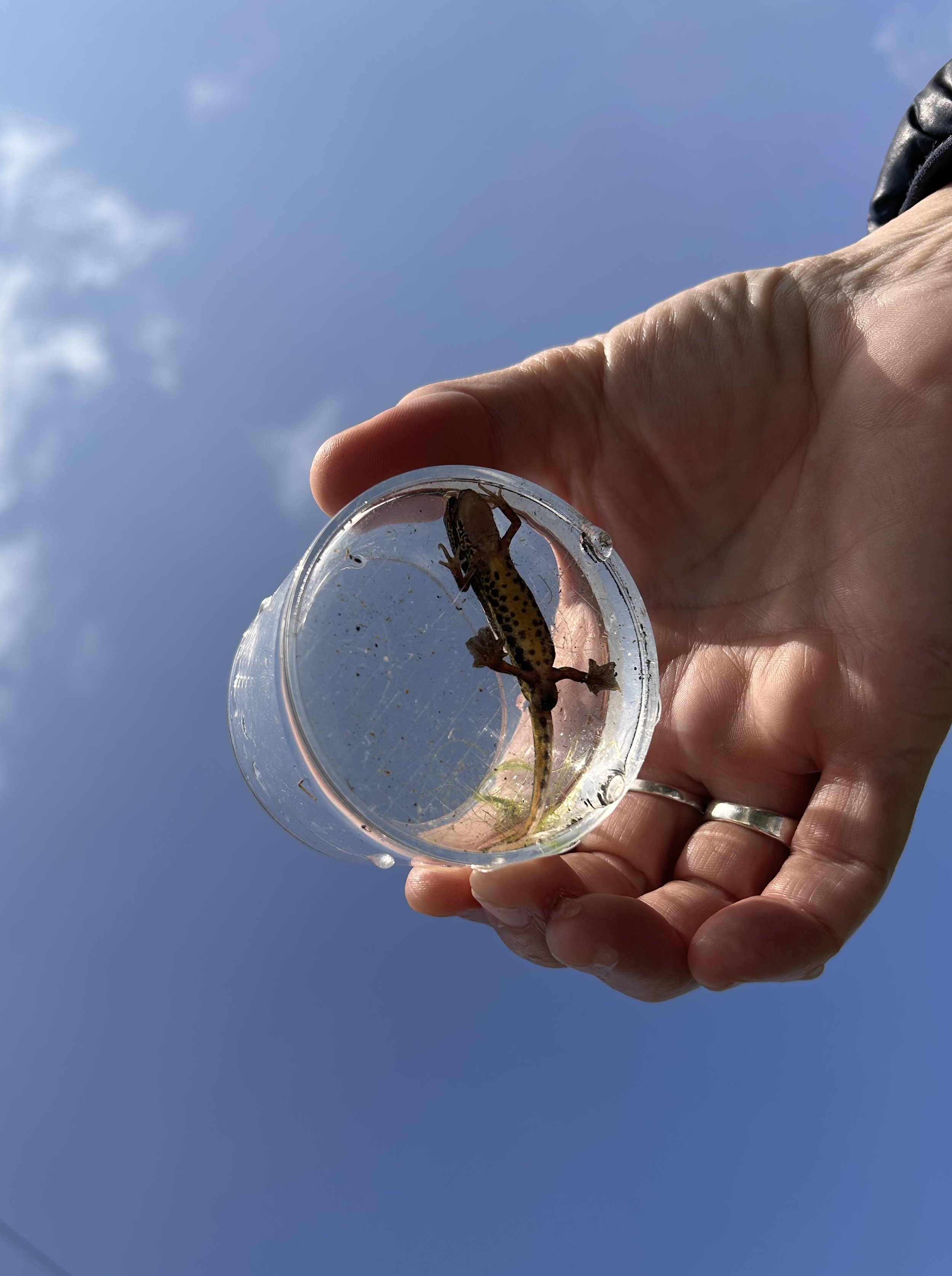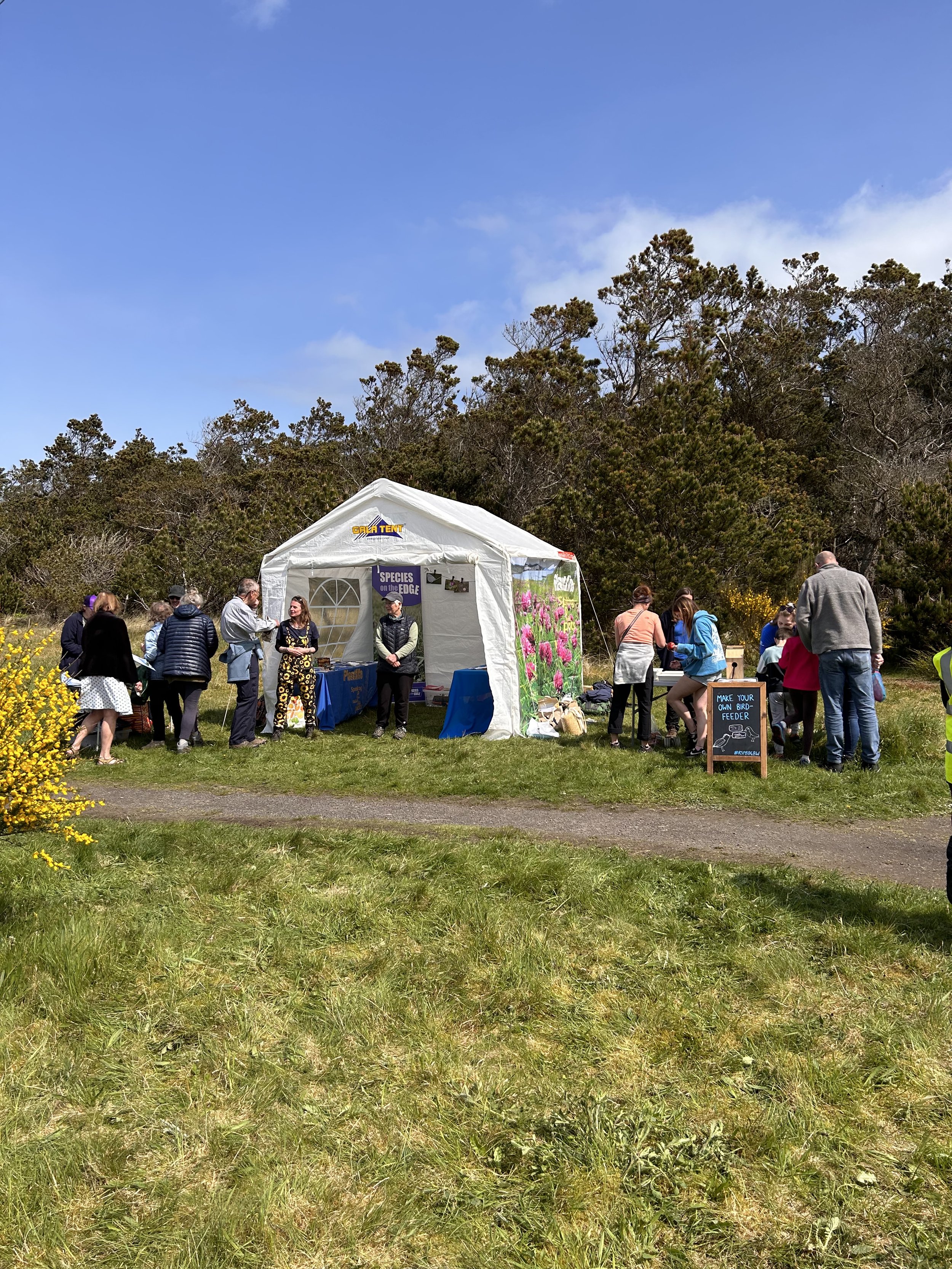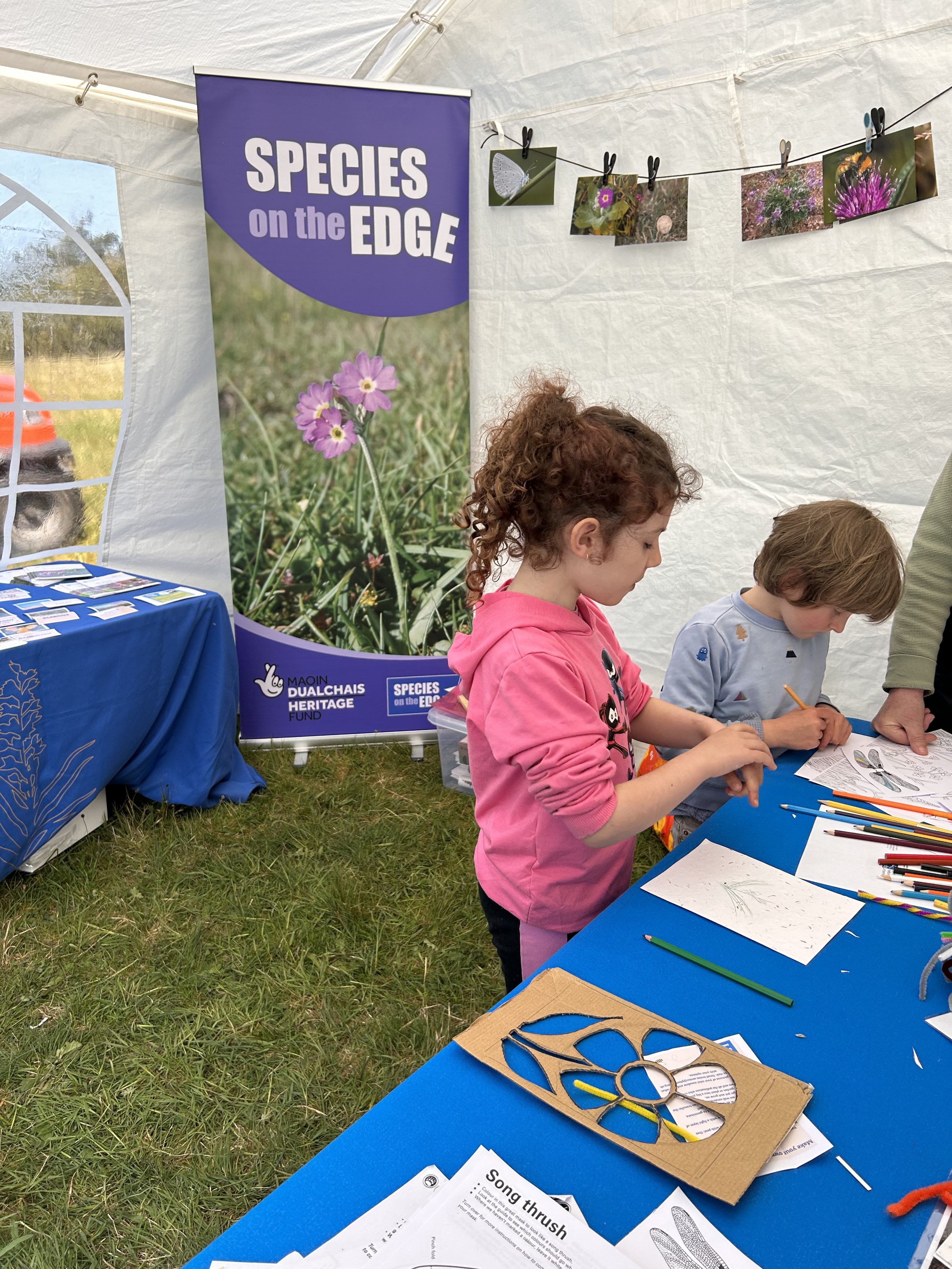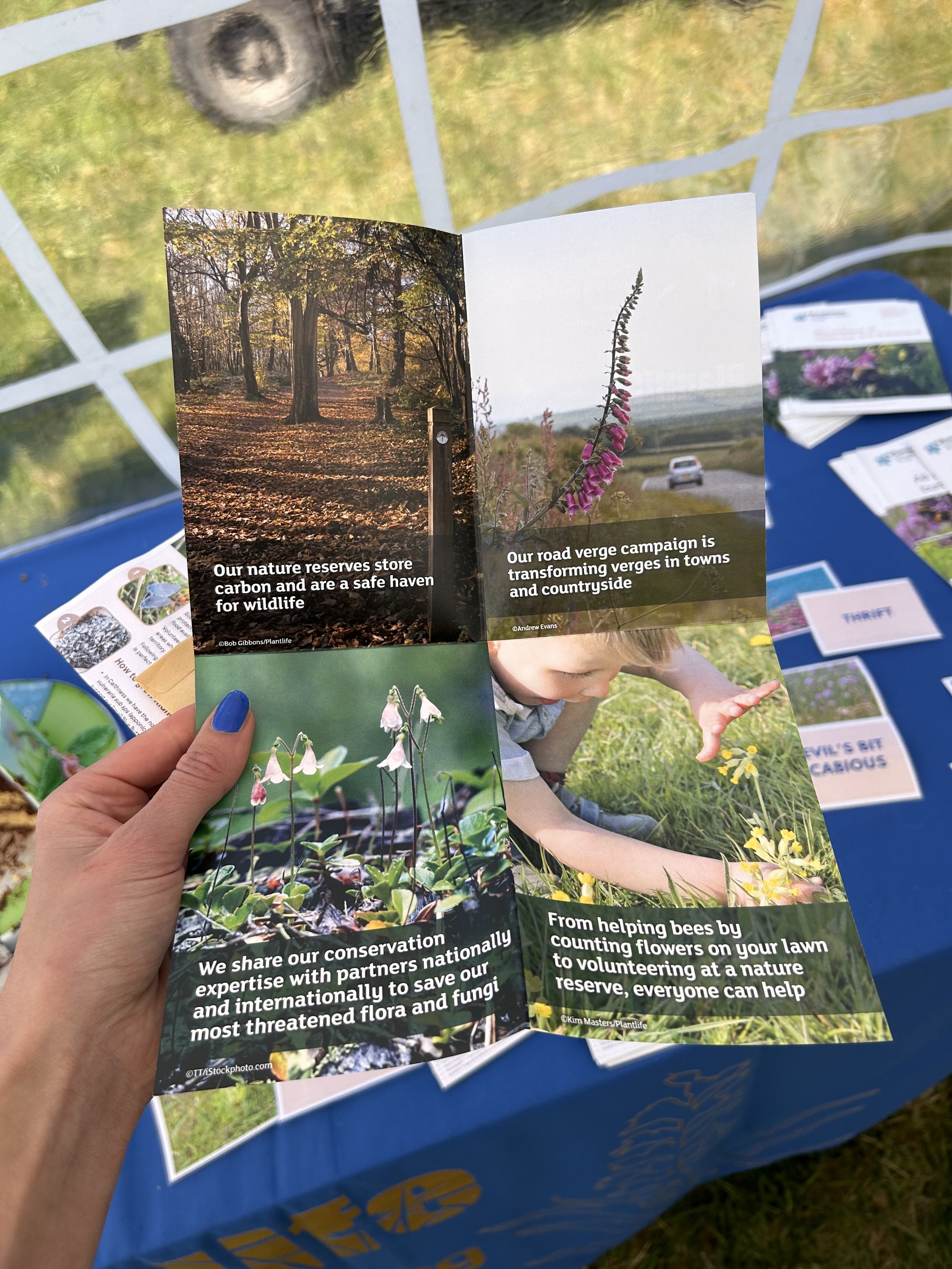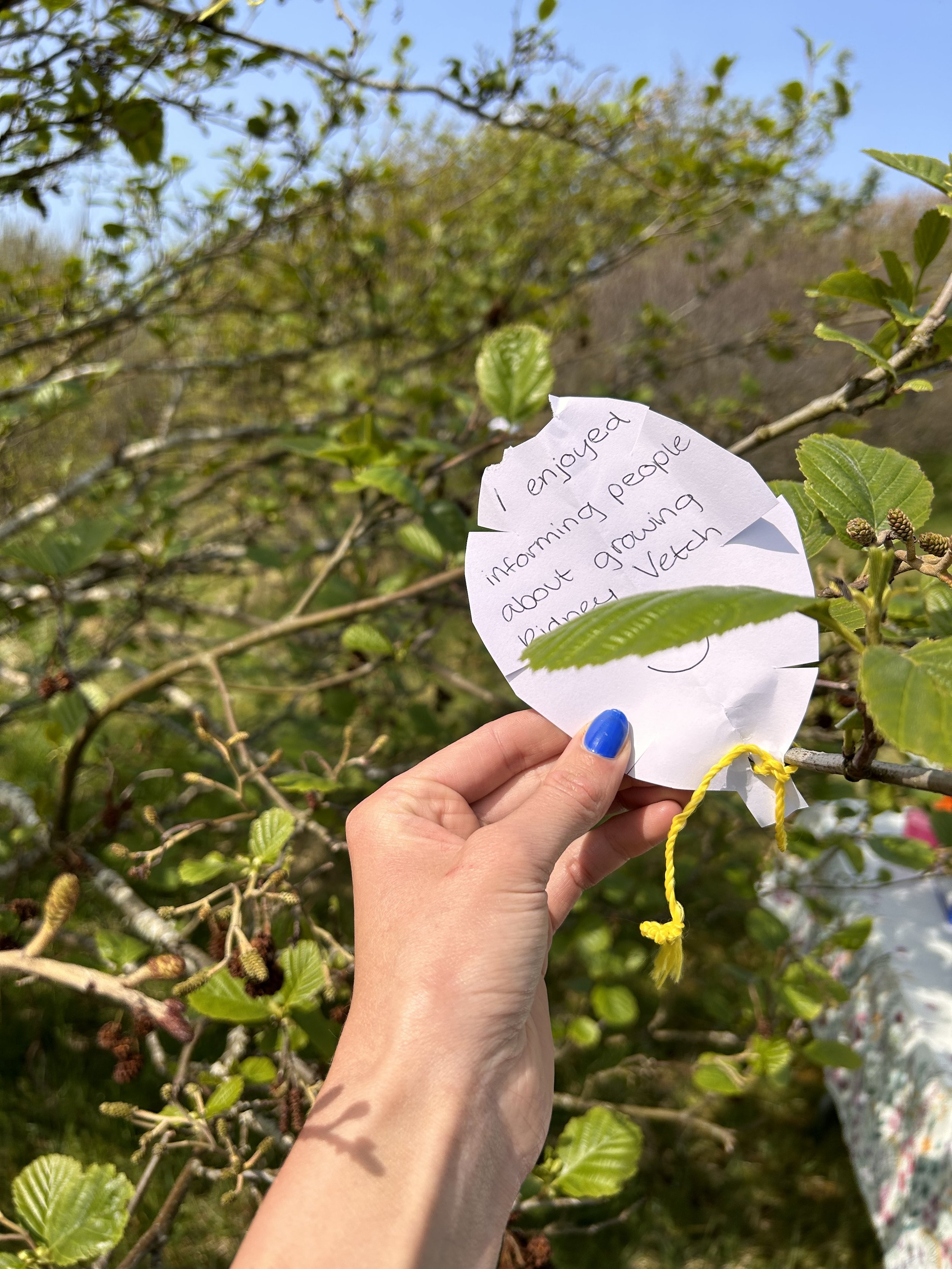Species on the Edge North Coast Launch in Dunnet Community Forest.
Sunday saw our Community Engagement Officer for Sutherland, Nadine attend the launch of PlantLife’s Species on the Edge event at Dunnet Forest. By good fortune the sun shone on the bay and this made for a really lovely afternoon. There was plenty to keep kids busy and engaged, from pond dipping, to crafts and making bird houses. There were lots of very friendly and knowledgeable team members on hand to help identify all of our pond finds – which was so appreciated by our budding naturalists and scientists.
The day was a great opportunity to learn more about Species on the Edge and the biodiversity aims of the project. While also giving us the opportunity to learn about the biodiversity that already exists in our area and how we can help look after and encourage it.
We so enjoyed meeting some of the local young people who volunteer with Plant Life/Species on the Edge in the forest and hearing about some of the great work they are doing. We were very kindly given a pouch of kidney vetch by the volunteers to grow at home. Kidney vetch is a key plant for wildlife, providing food for beetle and moth larvae, and pollen and nectar for a wide range of pollinators. It's also the sole foodplant of the small blue butterfly larvae, one of the species the project hopes to benefit.
It was great to share conversations with members of the community, the North Sutherland Wildlife Group and People Engagement Officer for Species on The Edge, Louise Senior. It got us thinking about ways we can potentially collaborate across the North to benefit our local communities and biodiversity.
Before visitors left the event, they were invited to write down what they enjoyed about the day and tie it to a specially designated tree. This was a great moment of connection between us all and gave a lovely ephemeral memento of the day. It really felt like a special way of bringing people together, gathering feedback and creating a fleeting in-situ, collaborative exhibition.
